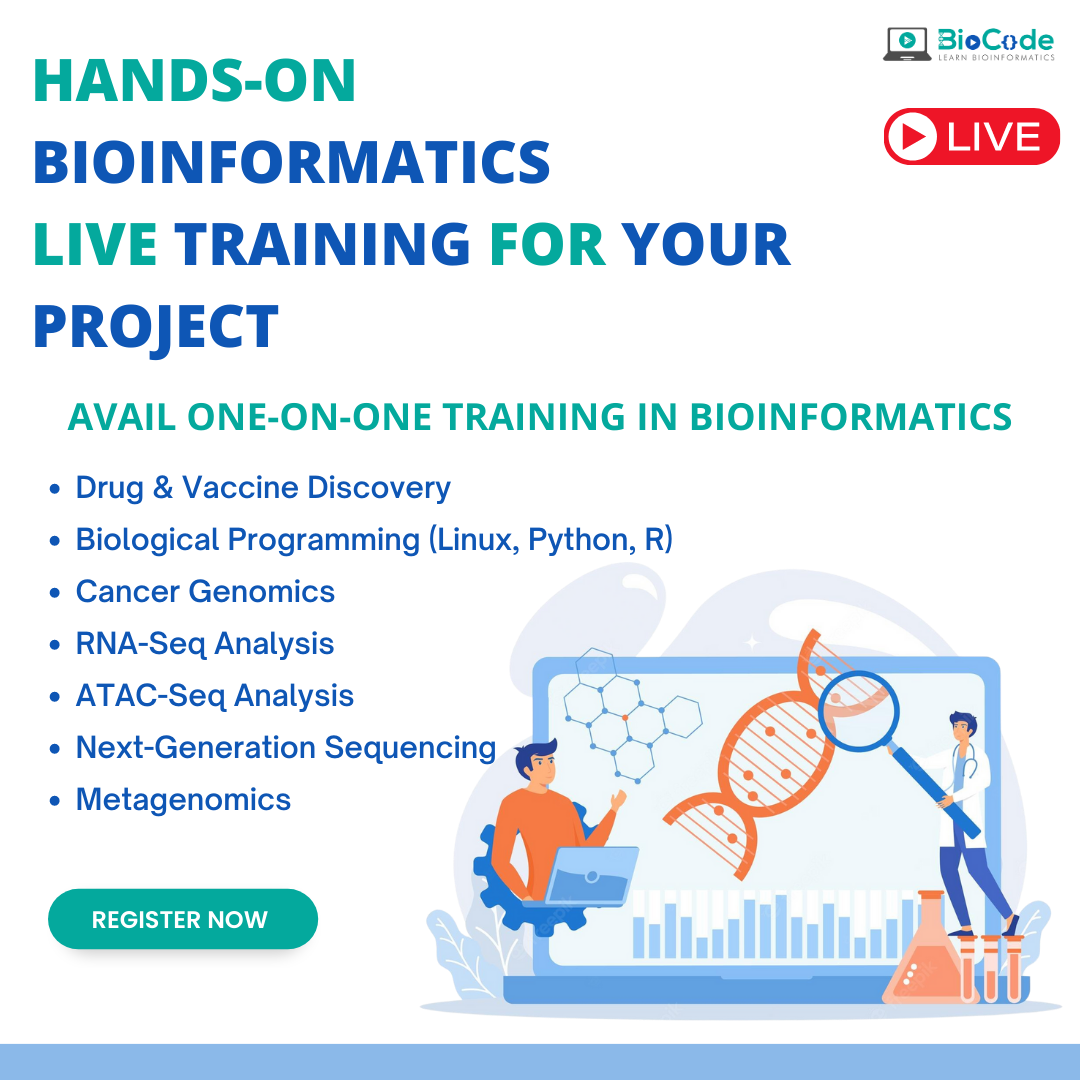Indicators on Bioinformatics Tutor You Should Know
Indicators on Bioinformatics Tutor You Should Know
Blog Article
Not known Details About Bioinformatics Tutor
Table of ContentsBioinformatics Tutor for BeginnersThe Main Principles Of Bioinformatics Tutor What Does Bioinformatics Tutor Do?See This Report about Bioinformatics TutorThe 2-Minute Rule for Bioinformatics Tutor
Of the overall participants associated with the training, 80% were students from public college institutions, while the continuing to be 20% originated from personal organizations. To get approved for a certificate of participation, trainees were needed to participate in at least 90% of the overall training hours. As an outcome of this need, an impressive 95% of the individuals efficiently gotten their certifications, having not just fulfilled the minimum attendance standards however also completed all assigned tasks throughout the training.
During the elevation of the COVID-19 pandemic, particularly between June and August 2020, the project team was tasked with arranging specialized training in bioinformatics. This training was especially targeted at students from the study team Core for Research study in Applied Computing at the Federal College of Pará (UFRA) The adjustment to remote discovering platforms due to the pandemic produced an opportunity to check out new training methodologies and electronic devices that boosted both reach and performance.
To react to the expanding need in the computing and life sciences fields, a sophisticated training course was introduced in 2020 labelled Intro to Artificial intelligence. This program was developed to supply an accessible yet comprehensive summary of Artificial Knowledge strategies, especially as used in bioinformatics. The program was executed over 3 months, from October to December 2020, and was delivered totally online via the Google Meet platform. This digital layout enabled involvement from pupils across Brazil, a number of whom may not have had the possibility to participate in in-person sessions.
Little Known Questions About Bioinformatics Tutor.
A remarkable function of this program was its focus on hands-on knowing. Around 50% of the overall training hours were devoted to sensible tasks where pupils constructed intelligent models and applications in a variety of scientific domain names, consisting of genes, molecular biology, and environmental information evaluation. Extensively utilized devices and frameworks such as Spyder, Google Colab, Jupyter Notebooks, and Orange were integrated into the coursework. These platforms enabled pupils to participate in real-time data adjustment, design training, and algorithm trial and error.
Sixty of them were affiliated with different higher education institutions in the state of Pará, while the staying twenty came from institutions found in 5 other Brazilian states. By presenting Artificial Knowledge in a appropriate and sensible context, the initiative offered to link the void in between theory and real-world application, giving pupils with a solid foundation for future research or employment in the area.
The training effort developed part of a more comprehensive scholastic outreach initiative referred to as the Bioinformatics on the Road project. This task has, over the years, introduced lots of pupils to the world of bioinformatics and computational biology. The occasions held under this umbrella effort have actually happened across numerous regions and years, as summed up in Table 1 (List of occasions, places, years, and overall varieties of trainees and teachers)
Several of these groups, at first brought with each other by their engagement in training events, have since gone on to produce independent clinical study in collaboration with neighborhood academic institutions. The training not only cultivated scientific reasoning within the context of bioinformatics but also triggered joint partnerships that prolonged past the training setting.
Some Known Facts About Bioinformatics Tutor.
The project itself was conceived and arranged by megabytes and RR, who supervised the preparation and execution of each step. Lectures were see this website delivered by a multidisciplinary group being composed of MB, FA, EF, KP, JS, DM, SN, LP, LG, IH, air conditioner, and rr. The exact same team, omitting IH and RR, likewise acted as tutors for the functional training components. Funding for the task was supplied with the give 88887.200562/ 2018-00 from CAPES. The writers expand their gratefulness to every person who added to the understanding of this job, whether directly or indirectly, because its creation.
The Federal University of Pará's Workplace of Research (PROPESP/UFPA) likewise gave financial backing, particularly for the manufacturing of the last manuscript. The writers declare no industrial or monetary conflicts of rate of interest that can have influenced the study. All analyses and viewpoints expressed in this short article are entirely those of the authors and do not always show those of their respective institutions, the author, editors, or reviewers included in the magazine process.

Indicators on Bioinformatics Tutor You Need To Know
From an instructional viewpoint, the training technique made use of in the training was purposefully interactive. Courses were performed in a way that encouraged trainee involvement and discussion, surpassing rote memorization to explore how concepts are created, used in every day life, and checked in academic settings. The educational ideology concentrated on supporting both strong and struggling students, giving customized assistance, and building confidence through sustained mentorship and patience.

Each team, including roughly 36 participants, was supported by three mentors-- a lot of whom were postdoctoral scientists with customized know-how. These advisors not just aided design the group projects yet also promoted their implementation, making sure that each research study concern was both suitably difficult and relevant. The objective was to offer a biologically practical context that individuals could discover via open-ended objectives and access to curated datasets.
For added understandings right into the method and results of this project-based understanding technique, visitors are routed to S1 Text, which consists of thorough summaries of the pedagogical structure, assessment strategies, and task themes made use of in the training sessions.
A Biased View of Bioinformatics Tutor
Of the total participants involved in the training, 80% were trainees from public greater education and learning organizations, while the continuing to be 20% came from private establishments. To qualify for great site a certification of More Info involvement, pupils were required to participate in at least 90% of the total training hours. Significantly, past the students who enrolled in the training sessions, 7 experienced trainers participated in providing the training courses, while 3 committed research study professors collaborated the total training procedure. About 50% of the complete training hours were dedicated to practical activities where students built intelligent models and applications in a range of scientific domains, including genetics, molecular biology, and environmental data analysis. The training not only fostered scientific reasoning within the context of bioinformatics yet also sparked collective connections that prolonged past the training atmosphere.
Report this page